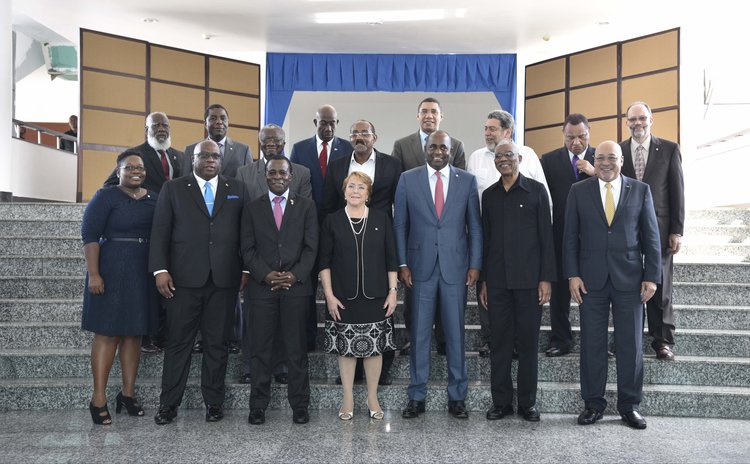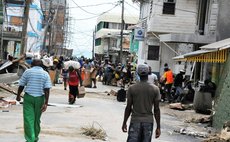Even in 2017, OECS countries must still advocate for Special Concessions

Last week's major PRIVATE SECTOR FORUM highlighted some of the many challenges still faced by local manufacturers. A key one that remains is what is sometimes "unfair" competition – not only from the world out there, but even from our CARICOM brothers.
From its advent, the CARICOM Agreement (it superseded the initial three-member CARIFTA one of 1974) contained special provisions to protect the smaller "LDC "(Least Developed Countries) from the larger "MDCs" (Jamaica, Trinidad, Guyana and Barbados). All subsequent amended versions and protocols ALL provided some domestic market protection – mostly by way of the right to impose higher import duties – to protect those local industries that qualified. There were major and minor disputes due to various interpretations - or just outright disregard of the trade rules by certain territories – but generally over the years, CARICOM maintained an important regional mechanism for continued integration
Then, in 2008, the global economic crisis descended. Every single country in the world was affected, obviously, some more than others. Dominica was actually among the least badly hurt, based on its GDP growth rate due presumably to policies of the government that were effective in cultivating friendly governments to finance many infrastructural projects.
Not so lucky was Barbados which, by 2011, was beginning to experience the worst of the global impact especially in respect of its major tourism sector.
So, with the advent of the much-delayed CSM (and later E…), the whole question of whether there should still be concessions within CARICOM for the LDCs had arisen once again. The smaller CARICOM countries would not be moved. Showing great leadership and vision, they insisted on the formal establishment of a new Regional Development Fund before putting their signature to the CSME. Our small OECS islands, now exhibiting a whole new stature with the formation of the impressive OECS "Union", argued convincingly that the Fund was absolutely necessary to help them improve their technical capacity in a host of developmental areas. It would cushion the likely invasion of their territories of goods from the larger territories and could even ultimately assist some of our local industries (or even new start-ups) to compete successfully in the wider CARICOM market, long dominated by the MDC's (ask Kubuli about what they face, even now, from Trinidad!)
The special "accommodating arrangements" are clearly necessary from our bigger CARICOM brothers. The smaller islands will always have a significant size disadvantage so that "economies of scale" are not in our favour. This position has always been recognized by CARICOM despite the economic bumps in the road experienced by the MDCs themselves from time to time.
The truth is, small economies almost always come with constraints. Indeed, it is precisely for the same principle that small and medium-sized businesses always attract special assistance from governments and development agencies. The OECS territories are a lot like small businesses in the CARICOM Nation. But we need each other. When the region negotiates with the outside blocks like the EU and North America, these mega economic groupings increasingly insist on talking to ONE Caribbean, or maybe two, and will NOT spend the time or money (or negotiate grant funding) to yet smaller groupings within the Caribbean. Their position is not unreasonable.
So even if the OECS states have in the last decade shown a commendable propensity to lead the way in deepening the integration movement, we expect our CARICOM brothers to continue to be sensitive to our still struggling levels of development. Indeed, we would expect nothing less from the larger members of our Caribbean economic family.


